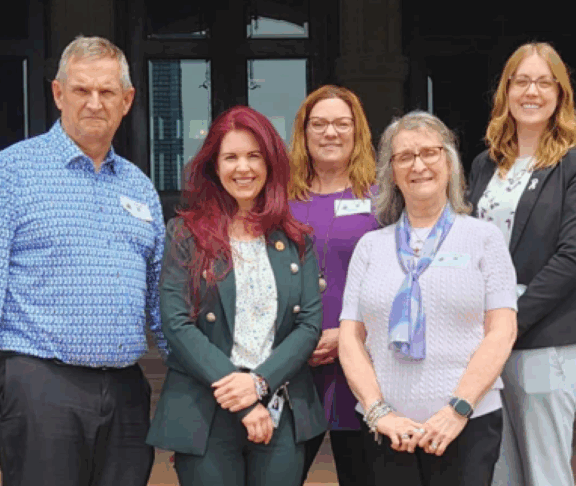
Dale Paynter
Vice Chair, Board of Directors, Platelet Disorder Support Association
Ontario patients with immune thrombocytopenia are pressing policymakers to expand public access to new therapies.
Innovation is transforming healthcare at an unprecedented pace. From devices that enable faster diagnoses to therapies that alleviate or even cure disease, the potential for improved patient outcomes has never been greater. However, healthcare systems are not always able to keep up with the speed of innovation. As a result, patients — especially those with rare conditions— can be left behind. This includes Ontarians living with immune thrombocytopenia (ITP).
A rare, serious blood disorder
ITP is a rare, chronic autoimmune condition that reduces blood platelets. Since platelets are essential for clotting, a low count can cause excessive bruising, bleeding gums, and in severe cases, life-threatening internal bleeding such as brain hemorrhages. While some people experience a mild form of ITP that resolves on its own, others endure a lifelong battle with the disease.
“It’s a different journey for each of us,” says Dale Paynter, an ITP patient from Cambridge, Ontario. “For some, it can be manageable. For others, it’s devastating. Different patients need different treatments — it’s as simple as that.”
Challenges in treatment pathways
But accessing those treatments isn’t always simple. The current treatment pathway in Ontario is limited and slow to adapt. Patients are treated first with corticosteroids and plasma-derived therapies; however, these are temporary fixes and come with significant side effects. If those fail, patients may be offered a splenectomy, a major surgery that involves removing the spleen. While this can be effective in some cases, it’s not a guaranteed cure and leaves the patient vulnerable to lifelong infection risks.
New treatments, still out of reach
In recent years, a new class of medications called thrombopoietin receptor agonists (TPO-RAs) have become available. These treatments are designed to stimulate platelet production and are considered effective and safe for chronic ITP patients. Three TPO-RA therapies are currently approved in Canada and have become part of established international treatment guidelines.
However, many patients still can’t access them—especially those relying on public drug plans. Canada’s Drug Agency (CDA) had issued negative recommendations for all three TPO-RAs, resulting in most provinces declining to cover them through public funding. While private insurance may cover the cost, not all patients have access to private plans.
“It’s incredibly overwhelming,” says Paynter, who also serves as Vice Chair of the Platelet Disorder Support Association’s (PDSA’s) Board of Directors. “There are proven, guideline-supported treatments accepted in other jurisdictions that could precede surgery and reduce hospital visits. Yet public access in Ontario remains limited and requires a great deal of documentation. That’s why we are advocating.”
Taking their message to policymakers
In May, PDSA organized our country’s first-ever ITP Awareness Day at Queen’s Park in Toronto. Patients, caregivers, and clinicians met with Members of Provincial Parliament to raise awareness and push for policy change. The group received a warm response.
“These first meetings were something I have dreamt of for my ITP family in Canada for over a decade, and the reception was encouraging,” said Paynter. “Officials listened, and many expressed a willingness to help.”
Turning advocacy into action
Just weeks later, Canada’s Drug Agency announced consultations on how TPO-RAs could be better integrated into the public system—though only two of the three approved treatments are included in the current review. Still, PDSA considers this progress.
As members of the ITP community meet this weekend in Toronto as part of ITP Awareness Month, they’ll be discussing how to keep that progress going, “Conversations with Ontario’s Ministry of Health have also been positive,” Paynter added. “We’re hoping to see that dialogue turn into real, meaningful change and accessible availability of more options for the benefit of ITP patients nationwide.”
To learn more, visit pdsa.org/canada.
This article was made possible by the support of Sobi Canada Inc.



